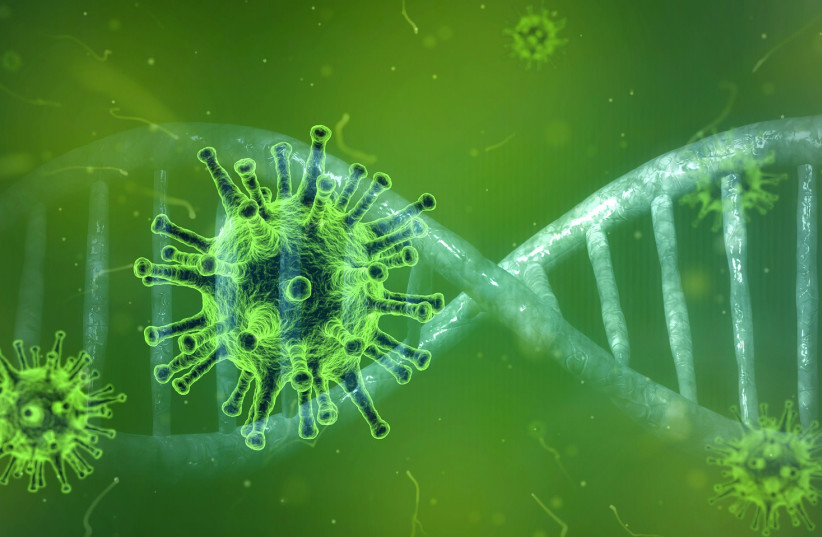In the best of times, the daily operations of AKIM-Jerusalem requires vigilant attention to issues of health and well-being of each individual in our care. We are a community that provides comprehensive services to people with special needs, who are far more susceptible than their peers in conditions from heart conditions to high blood sugar and diabetes. And in times of emergency, interruptions in daily routines are all the more daunting for people with cognitive disabilities.
Ongoing cycle of improvement
In the seventy-plus years since AKIM-Jerusalem was founded, we have lived through the myriad challenges confronted by all citizens of Israel. Yet, nothing could have prepared us for the unprecedented challenges of the COVID-19 pandemic. Although staff and residents fell ill with COVID-19, and there were many times of quarantine, the overall rates of serious illness were relatively low.
And as we reflect on our experiences of the past two years, we are heartened and reassured by the resilience, compassionate and flexible responses of our residents, staff and volunteers alike. The lessons we learned will enable us to utilize new insights that will contribute to our longstanding commitment to creating an ongoing cycle of improvement and growth.
Isabel Mikalaff, director of our independent housing program, learned that the adults who live in shared apartments proved that they were capable of adapting to new and puzzling protocols of daily hygiene and the dynamic disruptions in their cherished activities. Shahar Amit, who has been living with roommates in an AKIM-Jerusalem apartment for five years, pined for basketball, exercise in the gym and going out with friends. “All of my favorite things to do were the first to be canceled during quarantines.”
Ety Buchnic, who has been living in an AKIM-Jerusalem residence for 12 years, was blunt: “I hate Corona and I can’t wait for it to end. The rules always change. One day you are allowed to go to work and the next day you must stay at home. Who decides and how?”

Social worker Nayroz Hilo, noted that despite the frustration that overwhelmed everyone, the residents met the challenge. “Our residents proved to us that they had strengths we might otherwise not have discovered: They learned that they needed to take active responsibility for their health and well-being. It was not possible for the staff to stay on top of every aspect of daily living, and we were touched by the ways our residents took personal responsibility for themselves and their peers: They wore their masks properly, observed the rules of two meters of distance, and maintained the new protocols of daily hygiene.”
Several welcome discoveries
Before COVID-19, men and women with special needs may have been less alert to the consequences of breaches in health protocols. These unexpected and necessary demands also had a positive impact on other aspects of their self-care, as the men and women became more conscientious about their eating habits and daily exercise programs.
The professional staff affirms that these welcome discoveries will enable them to build on the adaptive skills of the men and women, and build on the momentum of this success.
Yet, alongside the new horizons for younger adults living in shared apartments and working in adapted employment, the difficulties confronted by elderly people were more unyielding. Akram Muhatadi, director of the Magen Hostel, home to aging and frail adults with cognitive disabilities, noted that it was more difficult to placate their distress and isolation from family members. The staff was also very burdened by the difficult day-to-day physical labor of helping residents (many with physical impairments) to maintain the stringent new standards of physical hygiene. Sival Yehezkel, director of Beit Yulia, another AKIM-Jerusalem hostel with elderly residents, said that regression was a natural consequence of the isolation from family members and daily routines that were, for many, inexplicable.
To help the helpers, a hostel room was transformed into a staff lounge, to enable workers to gain a bit of well-earned rest, a moment to listen to music, have a cup of coffee or call home. When staff members took on daily rituals of self-care, they return to their work refreshed and reinvigorated, and that is another important lesson that will be sustained.
Among the outstanding instances of dedication demonstrated by staff members was the decision of counselor Natalia Cohen to remain with those entrusted in her care in the apartment she oversees. When she saw the distress on the face of her clients, she asked her director if she could remain with them in their Gilo apartment during their illness and recovery: “It wasn’t easy, we were together in two bedrooms with a bathroom in between. I was grateful that my teenage daughter, at home, is very independent and she understood and accepted that my residents needed me more than she did. We spend the entire week together.”
There was distress, with residents asking if they could leave, and I did my best to distract them with games, art activities and video calls to family and friends. We spent an entire week together, as we waited for the doctor’s affirmation of our recovery.”
Natalia Cohen gave expression to the sentiment that guides the AKIM-Jerusalem mission and was brought to life during the most trying of times: “These people are my second family, and I was grateful that I was able to help and support them in this unexpected way.”
The writer is CEO of AKIM-Jerusalem.
